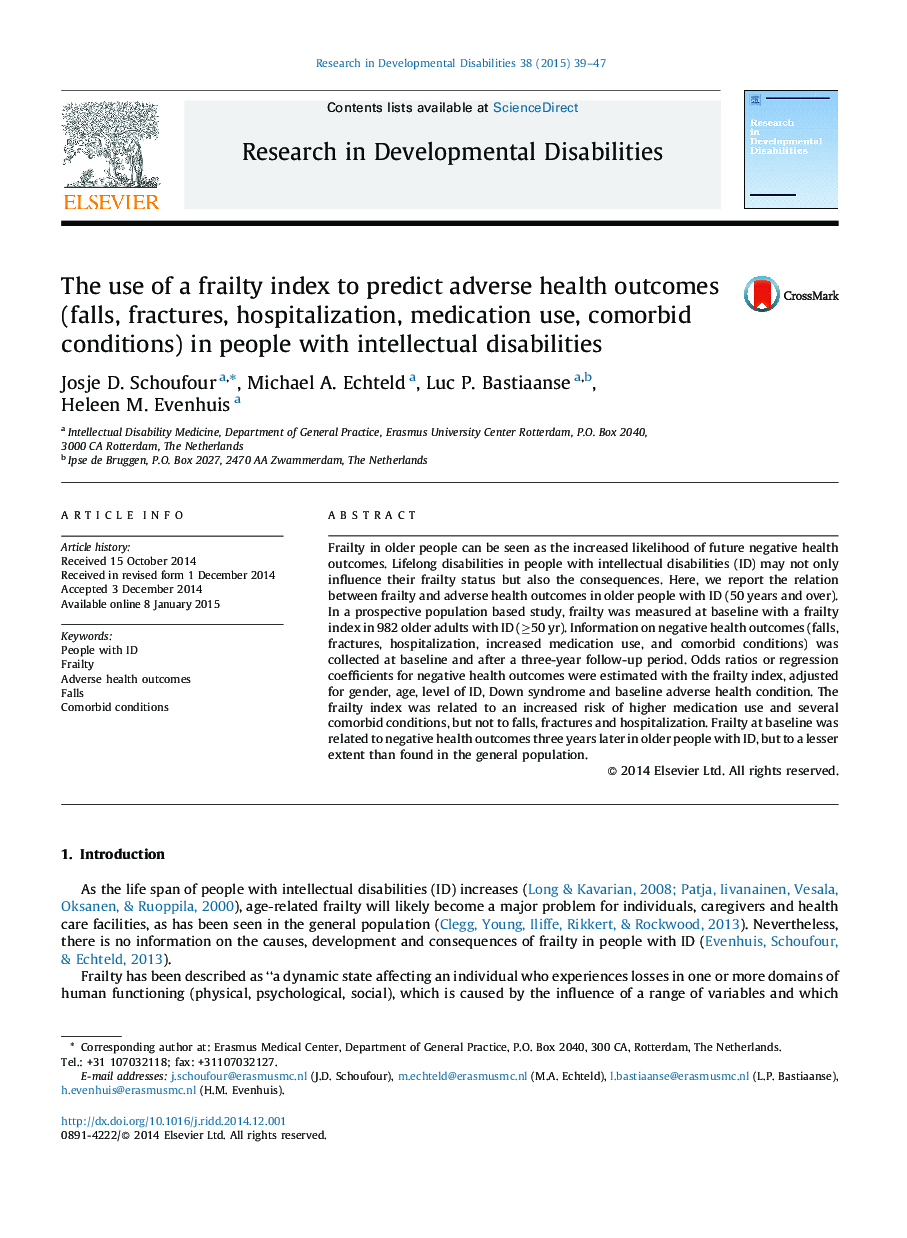| کد مقاله | کد نشریه | سال انتشار | مقاله انگلیسی | نسخه تمام متن |
|---|---|---|---|---|
| 371209 | 621903 | 2015 | 9 صفحه PDF | دانلود رایگان |
• People with intellectual disabilities show signs of early frailty.
• Frailty is associated with increased comorbid conditions and medication use.
• Frailty is not associated with hospitalization, falls and fractures.
• Interventions that limit frailty are required.
Frailty in older people can be seen as the increased likelihood of future negative health outcomes. Lifelong disabilities in people with intellectual disabilities (ID) may not only influence their frailty status but also the consequences. Here, we report the relation between frailty and adverse health outcomes in older people with ID (50 years and over). In a prospective population based study, frailty was measured at baseline with a frailty index in 982 older adults with ID (≥50 yr). Information on negative health outcomes (falls, fractures, hospitalization, increased medication use, and comorbid conditions) was collected at baseline and after a three-year follow-up period. Odds ratios or regression coefficients for negative health outcomes were estimated with the frailty index, adjusted for gender, age, level of ID, Down syndrome and baseline adverse health condition. The frailty index was related to an increased risk of higher medication use and several comorbid conditions, but not to falls, fractures and hospitalization. Frailty at baseline was related to negative health outcomes three years later in older people with ID, but to a lesser extent than found in the general population.
Journal: Research in Developmental Disabilities - Volume 38, March 2015, Pages 39–47
